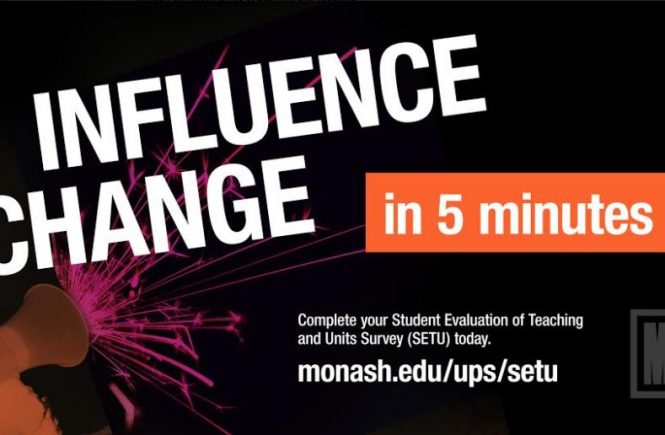An Interview With Professor Kate Denton
Written by Carla Edgley
Pictured above: Dr Kate Denton in her Lab.
So far, in my very short time as a Science Ambassador I’ve noticed a question that always pops up when speaking to future students; not many know the many career possibilities a Science degree can lead to. Realising this I decided to speak to someone who has had a prominent career in Science and could give future students an idea about a career in research, just one of the possibilities a Bachelor of Science at Monash can lead to.
It was with great pleasure that I got to speak to one of the most experienced professors in the physiology department at Monash University, Professor Kate Denton. Kate has taught me during my Bachelor of Science degree and she herself completed a Bachelor of Science at Monash. She is an example of an experienced woman in research who is also an extremely passionate and dedicated teacher to hundreds of students majoring in a biomedical area, specifically physiology.
Kate’s background:
Research;
Dr Kate Denton is a National Health and Medical Research Council Senior Research officer who has worked in the department of Physiology since 1997. Kate has mainly focused on researching the renin-angiotensin system that controls blood pressure and fluid balance in the human body. Research in this area could help detect kidney disease earlier and also help better understand heart disease- one of our biggest killers in Australia. Dr Denton’s research techniques and sophisticated methodologies are unique in Australia and have also been internationally recognised. In addition to being highly experienced in her research, Dr Denton is an Editor for the Clinical and Experimental Pharmacology and Physiology Journal, and is an executive member of the Council for High Blood Pressure Research. She has also served on a Regional Grant Interviewing Panel for the National Heart Foundation of Australia in 2004. Kate has published in over 80 journal articles and also in many book chapters.
Teaching;
Dr Denton lectures in renal physiology, cardiovascular control mechanisms and hypertension and supervises many research students including five PhD students and four Honours students. She is the unit convenor of Clinical Experimental Cardiovascular Physiology which I undertake as part of my Bachelor of Science and major in Physiology.
In order to gain some insight into Kates career I asked her a few questions about her experiences so far….
What made you decide to have a career in research and university level teaching?
I finished my undergraduate Science degree at Monash not really knowing what I wanted to do. One of the things that I really understood well, liked learning about and clicked with in the undergraduate years was the renin-angiotensin system. The Baker Institute was offering an Honors program in this area so I decided to complete an Honor’s year. I then ended up completing my PhD at The Baker Institute in this area also. I didn’t begin teaching until I had worked as a Research Fellow (post-doctorate) for about six to ten years, as the first step after finishing a PhD is a focus on research in the lab. You pick up teaching slowly with taking one or two lectures or being a lab demonstrator for undergraduate students. In order to be an academic however, teaching is a necessary requirement once you have a good level of experience in a certain area.
What does a day in the life of your career look like?
Earlier on, I used to spend about two to three days per week in the lab. However, now as I supervise junior researchers and am involved in education (in the undergraduate science program) I spend about half a day actually in the lab unless my students need help as I mainly write for publications now. Most university teachers run an undergraduate unit only in one half of the year (one semester) and the other half of the year/uni semester is focused more on their research. There are three different roles you can undertake in a career in research, one is a focus on research only, another is working in research but also teaching and projecting what you’ve learnt to students, or some purely work in education with a main focus on educating the future researchers. With my role I spend about 40% of time in research, 40% teaching students in my area of research and 20% undertaking admin duties.
What’s the best thing about your job?
Definitely flexibility. I have the ability to choose what I do day to day and where I spend my time.
Are there any challenges in working in research?
Yes, funding can be very hard to receive, and without funding you are unable to conduct research in the area you would like to. Research is also a very competitive field.
There has been a lot about women in research lately in the media, how the levels of men and women in undergraduate studies are evening out, however by mid-career and in senior research positions disparity deepens as the research gender gap grows, how do you feel as a woman working in science?
I think women can sometimes have a very different approach to men in different parts of research and how they undertake certain activities and that can sometimes affect whether they are heard or not in things like committee meetings. Being a woman in science can be difficult later on in life when pregnancies occur which causes women to be in the lab a lot less, however there are group leaders who know that women do need to still be considered and employed.
What is the most exciting experience you’ve had in your career so far?
There are two I can’t decide between! The first one would be being published internationally due to being well known for researching the role of the renin-angiotensin system, and specifically in females, as we don’t have the same pro-hypertensive effects as males and can often be protected from cardiovascular disease because of the differences in how things act in females.
Secondly probably my research in how renal nerves control renal function and how scientists have discovered that by cutting renal nerves, hypertension is reduced. There is a lot of interest these days in ablating nerves to reduce hypertension and I have done studies in sheep over a year where we cut their renal nerves and it did show that it works in reducing hypertension, although we have found it can cause other problems such as hemorrhage. For example, if someone without function of their renal nerves was in a bad car accident they may die five to ten minutes sooner than someone with function if hemorrhaging occurred.
What would you recommend to future students who want to go into a career in research and academia?
Don’t go into research if you don’t like it and don’t find it interesting, it’s a hard way to go if you’re not interested as there are long hours and lots of hard work. If you like it however, you become very passionate about the area your researching and working in. Personally, research is more what I enjoy and I mainly teach to express my research to students who are the next batch of potential scientists.




